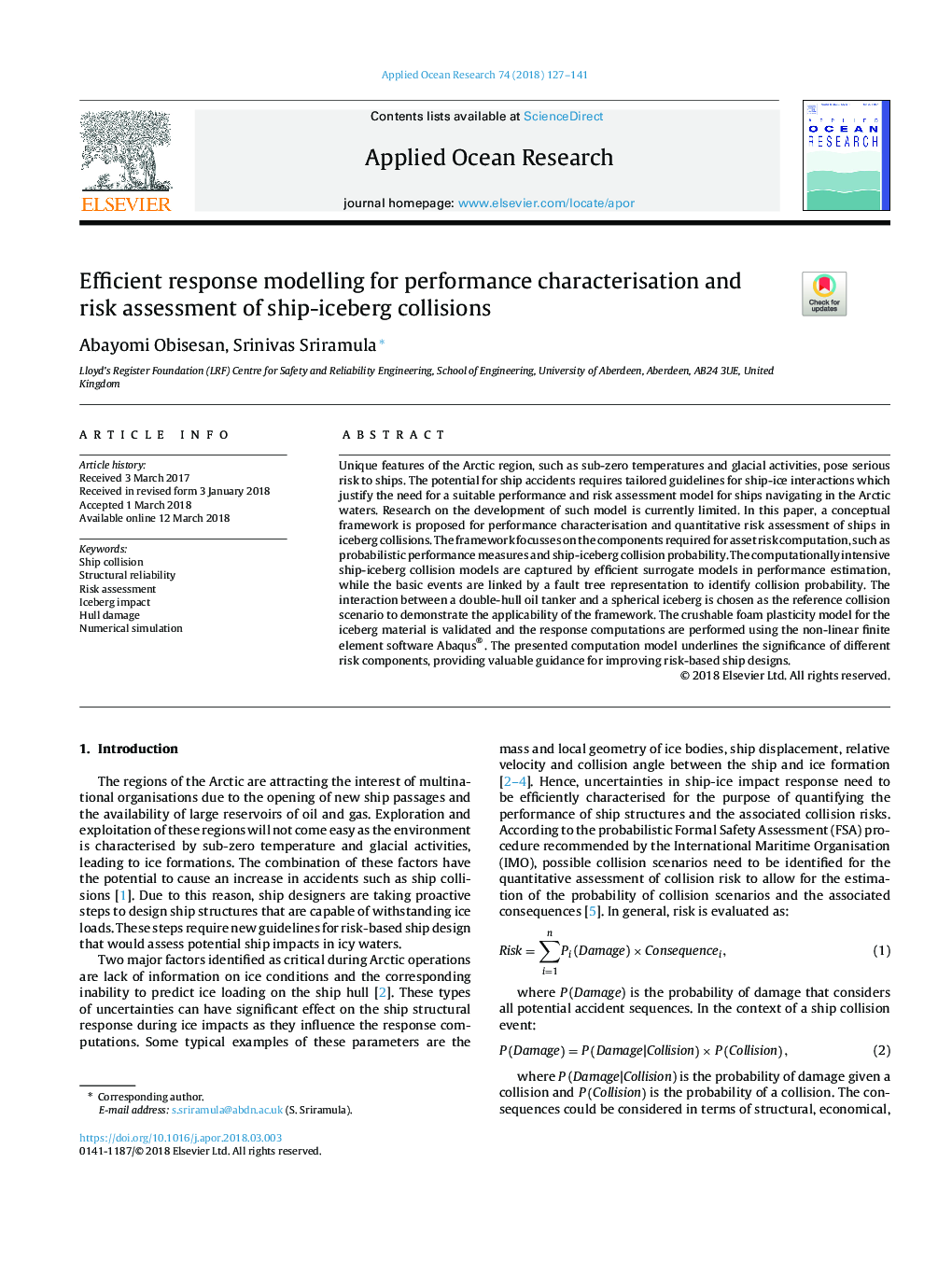| Article ID | Journal | Published Year | Pages | File Type |
|---|---|---|---|---|
| 8059288 | Applied Ocean Research | 2018 | 15 Pages |
Abstract
Unique features of the Arctic region, such as sub-zero temperatures and glacial activities, pose serious risk to ships. The potential for ship accidents requires tailored guidelines for ship-ice interactions which justify the need for a suitable performance and risk assessment model for ships navigating in the Arctic waters. Research on the development of such model is currently limited. In this paper, a conceptual framework is proposed for performance characterisation and quantitative risk assessment of ships in iceberg collisions. The framework focusses on the components required for asset risk computation, such as probabilistic performance measures and ship-iceberg collision probability. The computationally intensive ship-iceberg collision models are captured by efficient surrogate models in performance estimation, while the basic events are linked by a fault tree representation to identify collision probability. The interaction between a double-hull oil tanker and a spherical iceberg is chosen as the reference collision scenario to demonstrate the applicability of the framework. The crushable foam plasticity model for the iceberg material is validated and the response computations are performed using the non-linear finite element software Abaqus®. The presented computation model underlines the significance of different risk components, providing valuable guidance for improving risk-based ship designs.
Related Topics
Physical Sciences and Engineering
Engineering
Ocean Engineering
Authors
Abayomi Obisesan, Srinivas Sriramula,
